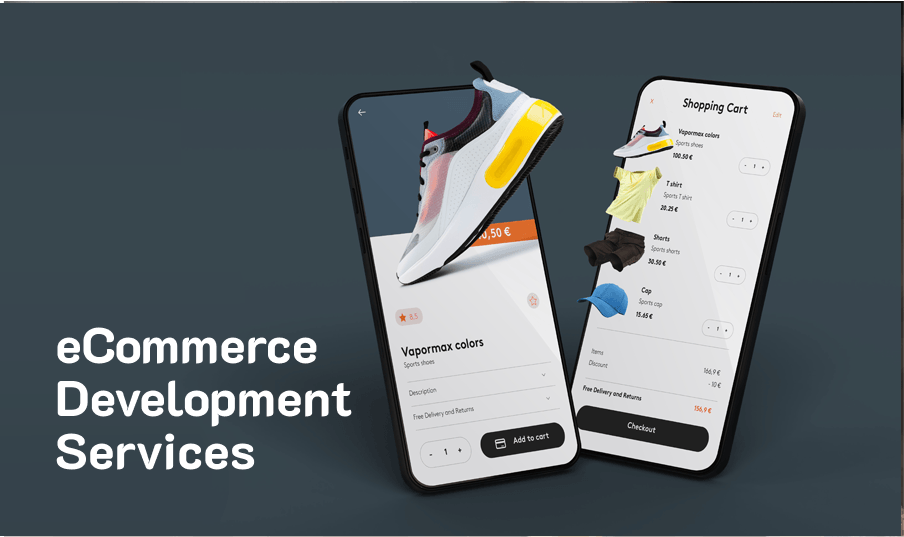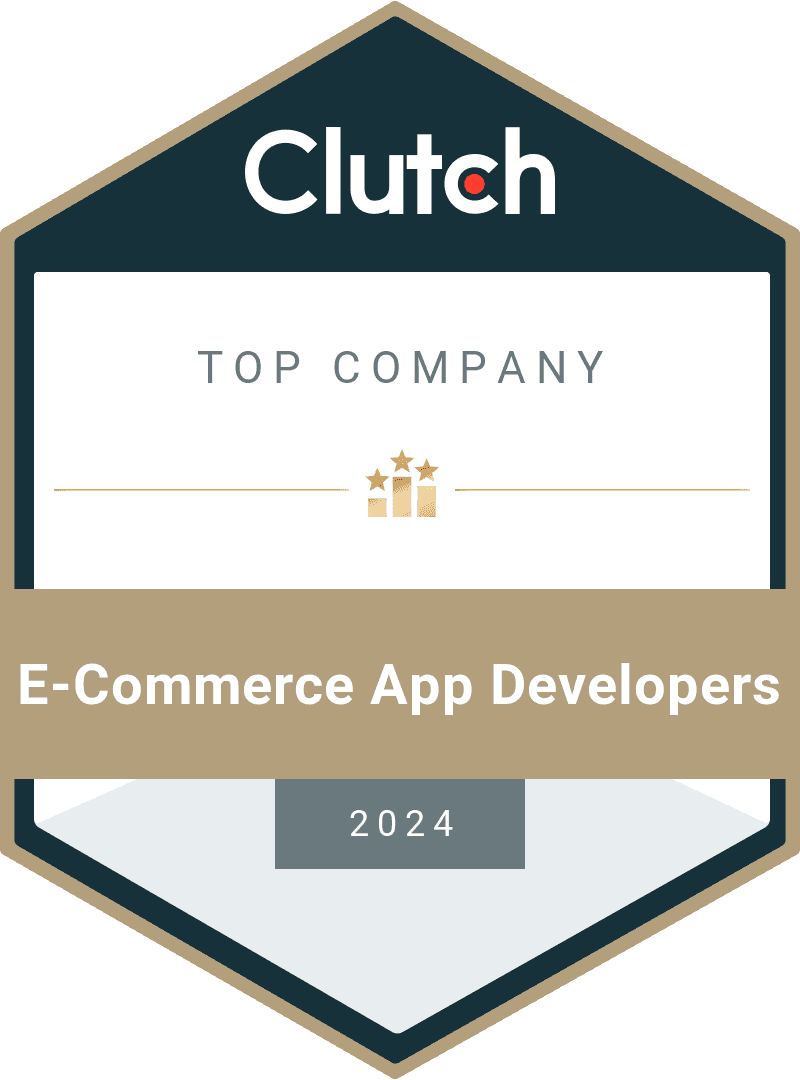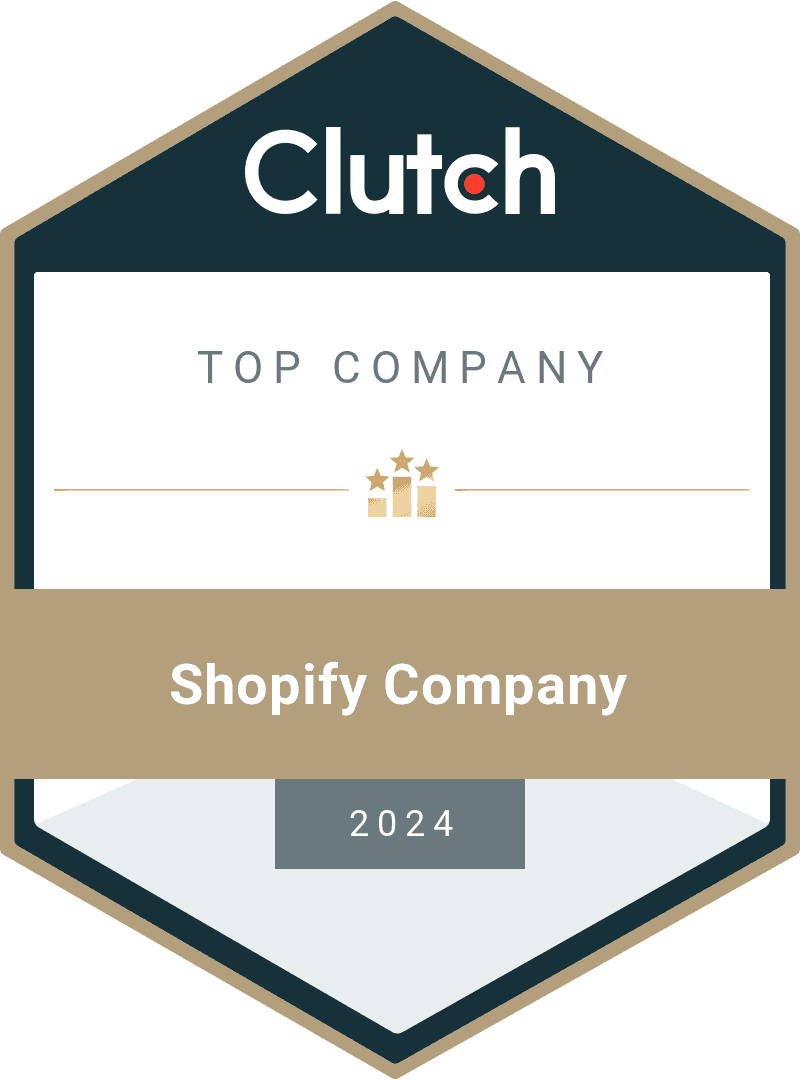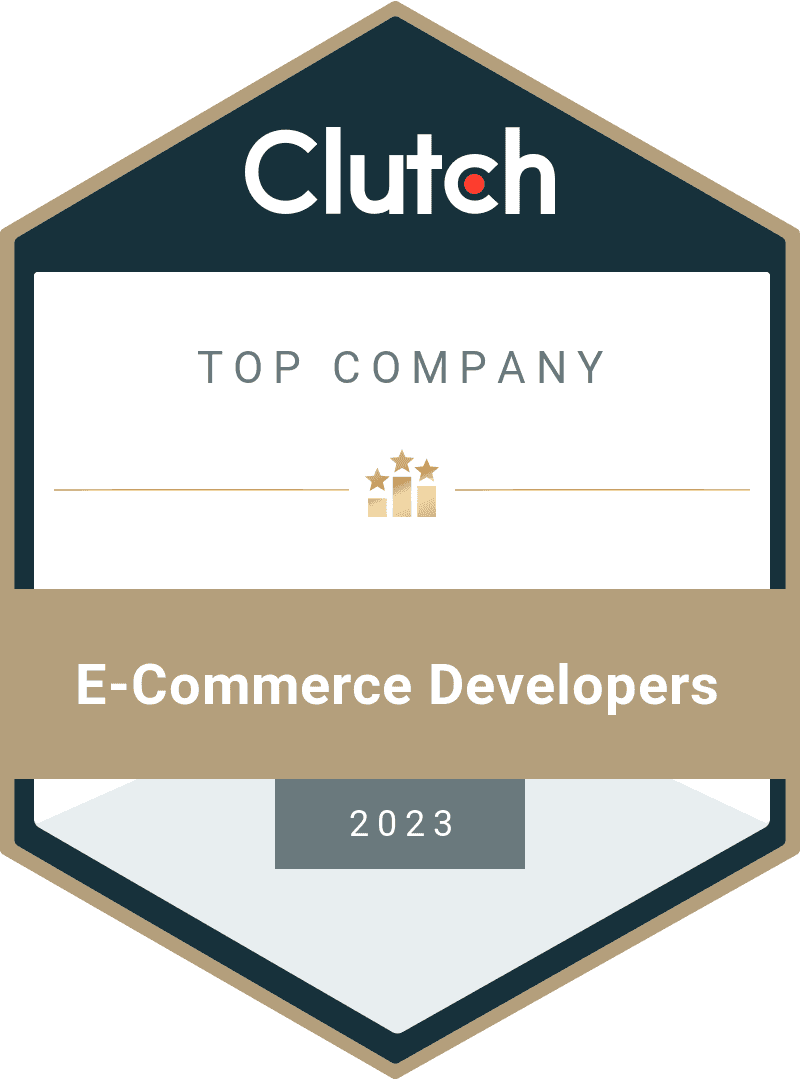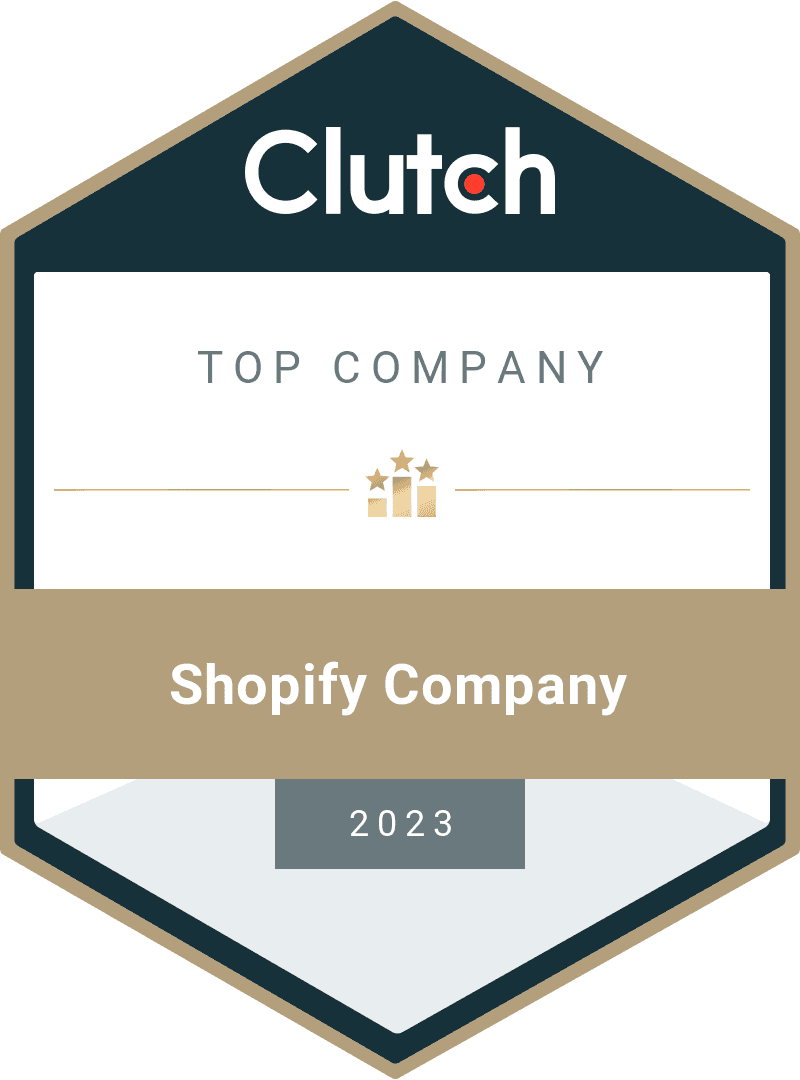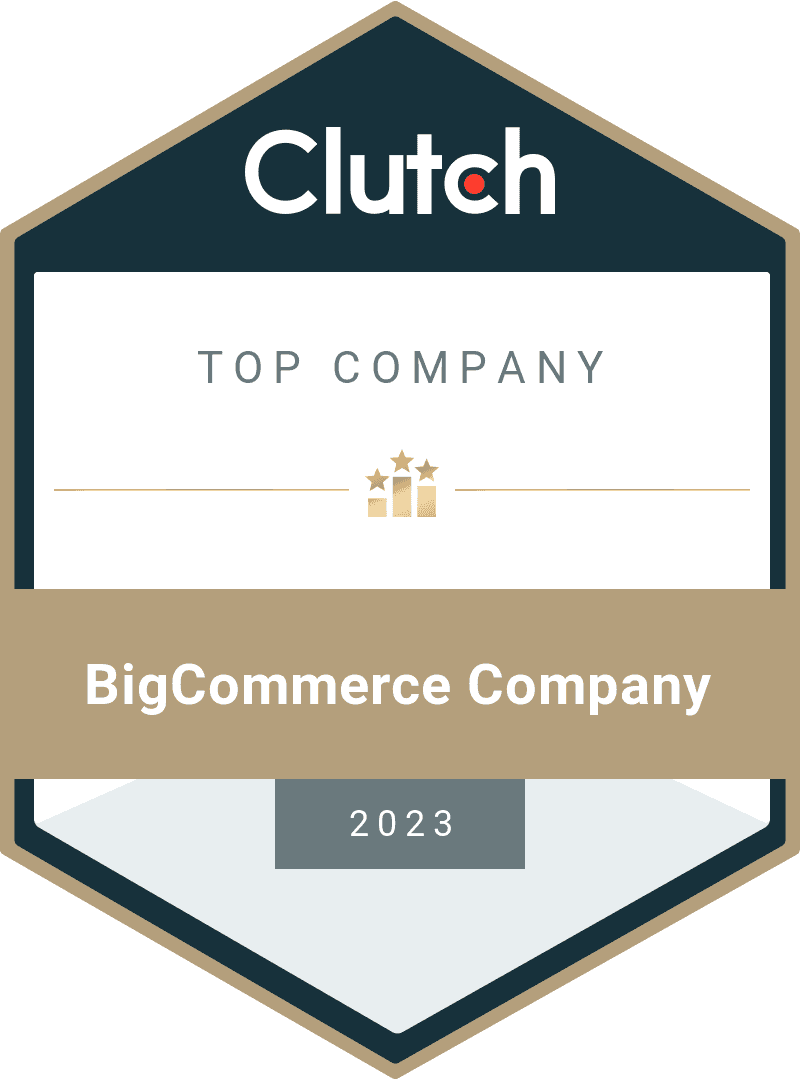In the fast-paced realm of online commerce, establishing a robust digital presence is imperative for businesses aiming to thrive in the digital age.
The strategic utilization of eCommerce development services becomes the cornerstone of this journey.
This article serves as a comprehensive guide, unraveling the intricacies of eCommerce solutions development and offering a strategic blueprint to empower businesses in creating, enhancing, and optimizing their online storefronts.
From foundational concepts to advanced strategies, embark on a journey that shows eCommerce app development and sets the stage for online success.
Overview of eCommerce Development
At its core, eCommerce development services encompass a suite of strategic and technical solutions dedicated to creating, enhancing, and managing online platforms where businesses can conduct transactions.
The transformative impact of these services on businesses within the digital landscape is profound, ushering in an era where geographical boundaries dissolve, and the potential for growth becomes boundless.
By leveraging eCommerce development services, businesses transcend traditional limitations, establishing a dynamic and omnipresent storefront accessible to a global audience. These services go beyond mere website creation, delving into the intricacies of user experience, security, and scalability.
The result is a seamless, visually engaging, and secure online environment that not only showcases products or services but also provides a compelling and frictionless journey for customers.
In the digital age, where consumer behaviors evolve rapidly, eCommerce development services serve as the catalyst for adaptability. From responsive design for various devices to incorporating cutting-edge technologies like AI-driven personalization and seamless payment gateways, these services ensure businesses stay ahead of the curve.
Moreover, eCommerce app development catalyzes business growth by unlocking new revenue streams, expanding market reach, and fostering customer loyalty through tailored experiences.
The agility afforded by eCommerce platforms enables businesses to swiftly respond to market trends, launch targeted marketing campaigns, and optimize operations for maximum efficiency.
In essence, eCommerce development services redefine the boundaries of traditional commerce, empowering businesses to navigate the digital landscape with agility, resilience, and a customer-centric approach.
As technology continues to advance, the transformative impact of eCommerce development services becomes increasingly pivotal, shaping the future of commerce and redefining success in the digital realm.
Significance of eCommerce in Modern Business
Custom ecommerce solutions play a pivotal role in reshaping market dynamics by offering businesses a digital gateway to a global audience. Through online platforms, companies can break free from traditional geographical constraints, extending their reach to consumers worldwide.
This enhanced market access becomes a catalyst for growth, fostering brand visibility and creating new revenue streams.
The online era has witnessed a profound evolution in consumer behavior. Modern consumers increasingly prefer the convenience of online shopping, fueled by the accessibility of a myriad of products at their fingertips.
The shift towards digital transactions reflects a demand for seamless experiences, personalized recommendations, and the convenience of making purchases anytime, anywhere.
As consumer expectations evolve, businesses adapting to these shifts gain a competitive edge in the dynamic landscape of the digital marketplace.
Key Components of Ecommerce Development Services
eCommerce solutions development encompasses critical components that collectively define the success of an online business. Website design stands as the initial cornerstone, where visual appeal meets functionality, creating an engaging digital storefront.
The seamless integration of user-friendly functionality is equally crucial, ensuring smooth navigation and efficient interactions. User experience (UX) takes center stage, dictating how visitors engage with the platform.
In this digital era, responsive design becomes paramount, adapting the website to various devices for a consistent and accessible experience. Safeguarding transactions, the integration of secure payment gateways is imperative, instilling trust and ensuring the protection of sensitive customer data.
These key components synergize to create a dynamic and secure online environment, fostering customer satisfaction and propelling the success of eCommerce ventures.

The Dynamics of Ecommerce Platforms
In the ever-evolving digital marketplace, choosing the right ecommerce platform is a strategic decision that profoundly impacts the trajectory of an online business. Popular platforms like Shopify, Magento, and WooCommerce offer a spectrum of features catering to diverse business models.
Shopify's user-friendly interface and seamless setup make it an ideal choice for startups and small businesses.
On the other hand, Magento ecommerce development, renowned for its scalability and customization capabilities, caters to enterprises with intricate requirements.
WooCommerce, integrated with WordPress, provides a flexible solution for businesses seeking a blend of content and commerce.
Platform selection goes beyond mere technological preferences; it aligns with overarching business goals. Factors such as scalability, ease of use, customization options, and integration capabilities directly influence how a business operates in the digital space.
Understanding the dynamics of each platform empowers businesses to make informed decisions, ensuring that their chosen solution aligns seamlessly with their unique requirements and growth aspirations. As the digital marketplace continues to evolve, the dynamics of ecommerce platforms play a main role in shaping the online presence and success of businesses worldwide.
Tailoring Solutions with Ecommerce Development
In the dynamic realm of ecommerce, embracing tailor-made solutions emerges as a strategic imperative for businesses seeking to thrive in the digital landscape. While off-the-shelf solutions provide a foundation, it's the customization that allows businesses to truly sculpt a platform that aligns with their unique needs and aspirations.
Custom ecommerce development accommodates specific functionalities, ensuring that the digital storefront is not just operational but optimized for the intricacies of the business model.
This bespoke approach extends beyond operational efficiency to profoundly impact user engagement. A customized platform, thoughtfully designed and aligned with the brand's identity, creates an immersive and personalized experience for users.
This heightened engagement not only fosters customer loyalty but also positions the business as a distinctive force in the competitive ecommerce arena. The flexibility inherent in tailored ecommerce development empowers businesses to adapt swiftly, ensuring that their digital presence remains not just functional but a dynamic and resonant representation of their brand.
eCommerce Development Services Process
Going on an ecommerce solutions development journey with an ecommerce app development company involves traversing through well-defined phases, each crucial in shaping a robust and effective online presence.
1. Planning:
The process commences with meticulous planning, where business goals, target audience, and functional requirements are dissected. This phase lays the groundwork for subsequent custom ecommerce website development,, ensuring alignment with the overarching objectives.
2. Design:
Website design is a pivotal phase where aesthetics, user experience, and functionality converge. It involves creating an intuitive and visually appealing interface that resonates with the brand identity while prioritizing seamless navigation.
3. Development:
The actual ecommerce software development phase brings the conceptualized design to life. It encompasses coding, database creation, and integrating features that enhance the platform's functionality. This phase is a collaborative effort involving developers, designers, and often, content creators.
4. Testing:
To ensure a flawless user experience, rigorous testing is imperative. Quality assurance professionals conduct thorough examinations, identifying and rectifying any glitches, bugs, or compatibility issues.
5. Deployment:
Once the platform clears testing, it's ready for deployment. The transition from development to live status involves launching the website, making it accessible to the target audience.
Iterative Development for Continuous Improvement:
What sets ecommerce app development apart is its iterative nature.
The process doesn't conclude with deployment; instead, it embraces ongoing refinement. Continuous feedback, user analytics, and market trends fuel iterative cycles, allowing businesses to adapt swiftly, implement improvements, and stay at the forefront of the competitive digital landscape.
This cyclical approach ensures that the ecommerce platform remains dynamic, responsive, and consistently aligned with evolving business needs and user expectations.

eCommerce Trends and Innovations
In the ever-evolving landscape of custom ecommerce web development, staying ahead necessitates a keen awareness of emerging trends and innovations that redefine the online shopping experience.
1. Artificial Intelligence (AI):
AI injects intelligence into ecommerce app development, offering personalized recommendations, predictive analytics, and chatbot interactions. Businesses leveraging AI enhance user experiences by delivering tailored content and streamlining customer interactions.
2. Augmented Reality (AR):
AR transforms the way consumers engage with products online. From virtual try-ons for fashion to visualizing furniture in a living space, AR creates immersive experiences that bridge the gap between online and offline shopping.
3. Voice Commerce:
Voice commerce, facilitated by virtual assistants like Alexa and Google Assistant, is reshaping how consumers make purchases. Users can now verbally command purchases, emphasizing the importance of optimizing ecommerce platforms for voice-activated interactions.
Staying Updated for Sustained Success:
The dynamism of ecommerce trends underscores the significance of staying abreast of innovations. Businesses embracing AI, AR, and voice commerce position themselves at the forefront of customer-centric experiences.
The key lies not only in adopting these technologies but also in continuously evolving strategies to align with evolving consumer behaviors. In this rapidly changing landscape, sustained success is intricately linked to the ability to anticipate, embrace, and integrate emerging trends that redefine the very fabric of online commerce.
Embracing a proactive approach ensures that ecommerce ventures not only adapt to change but lead the way in shaping the future of digital retail.
Case Studies and Success Stories
Embarking on real-world narratives, these case studies illuminate the transformative power of ecommerce app development, showcasing businesses that not only thrived but redefined success in the digital arena.
1. LuxeThreads - Elevating Fashion Retail:
LuxeThreads, a bespoke fashion retailer, witnessed unprecedented success after implementing a tailored ecommerce platform. The intuitive design and personalized features not only enhanced the user experience but also contributed to a substantial increase in conversion rates. This platform's scalability allowed for seamless integration of marketing campaigns, positioning LuxeThreads as an industry leader and realizing a remarkable surge in revenue.
2. GadgetHub - Reshaping Electronics Retail:
GadgetHub's strategic foray into ecommerce development resulted in a remarkable shift in brand positioning. A meticulously designed platform, coupled with robust backend functionalities, elevated the brand's credibility and user trust. This, in turn, led to a notable increase in revenue as the platform became synonymous with reliability in the electronics marketplace.
3. GourmetPalate - Crafting Culinary Excellence:
GourmetPalate, a specialty food store, harnessed the potential of AI-driven recommendations on its ecommerce platform. This not only boosted sales but also created a loyal customer base. The personalized shopping experiences, fueled by AI algorithms, contributed to a significant uptick in average order value and customer retention, solidifying GourmetPalate's foothold in the specialty food market.
These case studies, featuring LuxeThreads, GadgetHub, and GourmetPalate, underscore the multifaceted impact of ecommerce development. Beyond revenue augmentation, these businesses experienced enhanced customer engagement, fortified brand positioning, and a substantial increase in market share.
The success stories reaffirm that a strategic and well-executed ecommerce development approach goes beyond digital transactions, transforming businesses into influential entities, shaping the narrative of success in the ever-evolving digital marketplace. You can learn more about our ecommerce projects here.
Choosing the Right eCommerce Development Partner
Selecting the right ecommerce app development company is a pivotal decision that significantly influences the success of an online venture. Delving into the intricacies of this crucial selection process unveils the key factors that businesses must consider.
1. Expertise and Specialization:
A reliable ecommerce mobile app development company should showcase expertise in ecommerce app development, understanding the nuances of diverse industries. Specialization in platforms, technologies, and features aligning with specific business needs ensures a tailored and effective solution.
2. Proven Track Record:
Examining a development partner's portfolio and track record is essential. Successful case studies and testimonials provide insights into their ability to deliver quality custom ecommerce solutions. A history of working with businesses similar to yours can instill confidence in their capabilities.
3. Collaboration and Communication:
Effective collaboration and communication are the cornerstones of a successful partnership. A development team that values client input, actively engages in discussions, and provides transparent communication throughout the project fosters a conducive working relationship.
4. Scalability and Flexibility:
The chosen partner should offer scalable custom ecommerce solutions that can adapt to the evolving needs of the business. A flexible approach ensures that the ecommerce platform can grow seamlessly with the business, accommodating changes and enhancements.
5. Post-Launch Support and Maintenance:
Beyond development, reliable post-launch support is crucial. A trustworthy partner provides ongoing maintenance, updates, and support to address any issues promptly. This ensures the sustained functionality and performance of the ecommerce platform.
6. Security and Compliance:
Security is paramount in ecommerce solutions development. A reputable development partner prioritizes the implementation of robust security measures, ensuring the protection of sensitive customer data. Compliance with industry regulations further solidifies their commitment to data integrity and privacy.
7. Cost and Value Proposition:
While cost is a consideration, it's equally essential to evaluate the value proposition. A ecommerce app development company offering a balance between cost-effectiveness and value, with a transparent pricing structure, proves to be an asset in the long-term success of the ecommerce venture.
Choosing the right ecommerce app development company is a strategic investment that extends beyond project completion. It is a collaborative journey where expertise, communication, scalability, support, and security converge to lay the foundation for a thriving online presence.
Why Do You Need eCommerce Development Services?
eCommerce development services play a pivotal role in unlocking the full potential of businesses, fostering growth, and navigating the dynamic digital landscape. The significance of these services can be encapsulated in several key aspects:
1. Global Market Reach:
eCommerce app development extends businesses beyond geographical constraints, providing a platform to reach a global audience. This expanded market reach opens avenues for increased sales, customer acquisition, and brand visibility.
2. Enhanced Customer Experience:
An effectively developed ecommerce platform ensures a seamless and user-friendly experience. From intuitive navigation to personalized interactions, it enhances customer satisfaction and builds brand loyalty, crucial elements in sustained success.
3. Increased Revenue Streams:
Custom eCommerce web development facilitates diverse revenue streams, including online sales, subscriptions, and digital product offerings. This versatility empowers businesses to diversify income sources and capitalize on emerging market trends.
4. 24/7 Accessibility:
Unlike brick-and-mortar stores, ecommerce platforms operate round the clock, offering customers the convenience of shopping at any time. This perpetual accessibility not only caters to diverse time zones but also accommodates varying customer preferences.
5. Data-Driven Insights:
Ecommerce platforms generate valuable data insights that businesses can leverage for informed decision-making. Analytics tools provide information on customer behavior, preferences, and market trends, empowering businesses to refine strategies and stay competitive.
6. Scalability and Adaptability:
As businesses evolve, ecommerce platforms need to scale and adapt accordingly. Ecommerce development services ensure that platforms remain flexible, accommodating growth, technological advancements, and changes in business models.
7. Competitive Edge:
In a competitive marketplace, a well-developed ecommerce presence becomes a competitive differentiator. It not only positions businesses as forward-thinking and customer-centric but also equips them to meet the evolving demands of the digital-savvy consumer.
8. Cost-Efficiency:
eCommerce app development streamlines operational processes, reducing the need for extensive physical infrastructure and personnel. This leads to cost efficiencies and improved resource allocation, contributing to overall business profitability.
In essence, ecommerce development services are a catalyst for business expansion, customer engagement, and adaptability in an ever-evolving digital landscape. Embracing these services isn't just a technological upgrade; it's a strategic imperative for businesses aiming to thrive and excel in the competitive realm of online commerce.

FAQs about eCommerce Development Services
What is eCommerce development?
eCommerce development is the process of creating, designing, and maintaining online platforms where businesses can sell products or services. It involves building websites or applications that ensure a seamless and secure online shopping experience for users. From crafting visually appealing interfaces to implementing robust payment systems, eCommerce app development services cover a spectrum of elements to enhance the digital retail landscape.
Why is eCommerce development important for businesses?
eCommerce development is pivotal for businesses as it opens doors to a global market, expanding reach and increasing sales potential. It introduces convenience for both businesses and consumers, providing valuable insights through analytics to understand customer behavior. In an ever-evolving market, eCommerce software development ensures adaptability to emerging trends, making it a cornerstone for sustained growth and competitiveness.
What are the key components of eCommerce development?
Key components encompass a holistic approach, including website design that captivates users, seamless functionality for easy navigation, optimal user experience, secure payment gateways for transactions, efficient inventory management, and responsive design ensuring a consistent experience across various devices. Each component plays a crucial role in delivering a comprehensive custom eCommerce solution.
Which eCommerce platform is best for my business?
Choosing the best eCommerce platform involves considering factors such as business size, scalability requirements, customization needs, and integration capabilities. Popular platforms like Shopify, Magento, WooCommerce, and others cater to different needs. A careful assessment of these factors will guide you toward selecting the platform that aligns most effectively with your unique business goals.
How much does it cost to develop an eCommerce Platform?
The cost of eCommerce software development varies based on factors like the chosen platform, desired features, extent of customization, and project complexity. While a basic platform may have a more affordable development cost, robust, customized solutions may require a higher investment. A detailed discussion with development professionals can provide a tailored estimate based on your specific requirements.
Learn more about this subject in our article How Much Does It Cost Сreating an App for Your Business?
How can custom eCommerce development benefit my business?
Custom eCommerce development brings a host of benefits by tailoring solutions to your business's specific needs. It offers flexibility in design and functionality, ensuring scalability as your business grows. Custom development also provides a unique user experience, helping your brand stand out in a competitive market, and fostering customer loyalty through personalized interactions.
How to choose an eCommerce development partner?
Selecting the right custom eCommerce development partner involves a thorough evaluation of their experience, portfolio, client reviews, communication practices, and post-launch support. A partner, like Uran Company, who understands your business goals and aligns with your vision will contribute significantly to the success of your eCommerce venture.
How long does it take to develop an eCommerce website?
The timeline for custom eCommerce website development depends on factors such as project complexity, desired features, and customization requirements. A basic eCommerce website may take a few weeks, while more intricate platforms with extensive features could extend the development timeline to several months. Collaborating closely with development professionals will help establish a realistic timeline based on your project specifics.
Relevant Articles:

